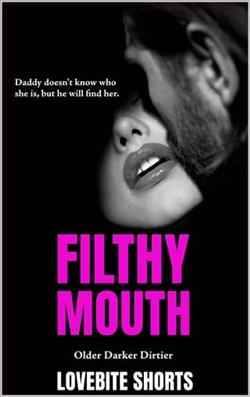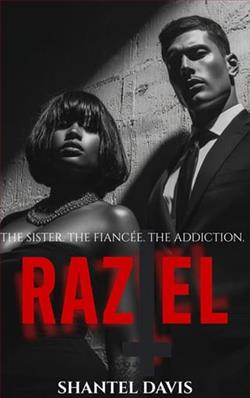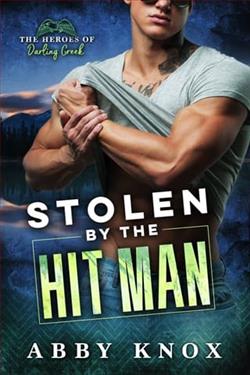Page 23 of Slow Burn
She stood at the counter, scooping brown powder into a filter, and avoided meeting his eyes.
“Oh, sweetie, the whole thing stunk like a dead cat. While we were on vacation I had the hotel send it out.”
Jerry stared mournfully at his sweatpants, patted the clean springy cloth, and sighed.
“I liked them the way they were.”
Still, it was already six, and no time to worry about it. He pulled the pants on, zipped up the thick fleece jacket, and sat down to lace up his running shoes with the absent skill of a true fanatic. Brandi yawned and waited on her coffee; they didn’t discuss breakfast, or anything else. She’d have it ready when he got back, just like always. They’d share the paper and watch a little of the “Today” show and go off to work, then end the day with dinner and dishes and two hours of television. Brandi would go to sleep reading, and he’d lie awake, staring at the ceiling, for another hour or two.
Jerry hated his life in a cordial, contemptuous way. He’d planned on being rich, having a fast red car and a glitzy job and a beautiful model for a wife. He’d compromised, and in the end there was nothing wrong with what he had. The disappointment only got to him once or twice a month, watching the bigwigs chat about golf and tailored suits and the latest vacation extravaganza.
He’d had four days in Dallas, for god’s sake. Some vacation.
Brandi waved to him as he went out the door.
In the yard the grass was lightly moist. It hardly ever rained, and Jerry’s grass was a neighborhood scandal, since he watered it every night for hours. Water rationing was in force, but he was careful not to turn it on too high and make a telltale puddle on the street. He trotted past the stunted evergreen trees at the back and came out on Lee Trevino Road. Even at six, there were some cars out, though nothing like the traffic he’d seen in L.A. on his last business trip, or even in Dallas. El Paso’s cars had a different quality—older, dispirited, rough-running. Even the new ones had a kind of bleached arid quality. It was the water, he was convinced. Nasty water.
Stretching was an automatic thing, accomplished efficiently. He began to trot and found his stride within a block. The sidewalk spilled a thin gray ribbon down the hill; once his feet were on it, it carried him along like a concrete river. His breath burned cold for a few seconds, then began to warm up. His shoes slapped with soothing regularity, and overhead a night-flying bird chirped and passed him with a feathery rush of wings. Headlights from an oncoming car washed him in halogen glare, quickly gone. He felt the muscles in his back loosen and swell, and in the distance the sun was a hint behind faraway sawtoothed mountains. The air was still and clear.
He’d only gone a mile when dizziness hit and he broke stride, caught a light pole for support. He put his head down and sucked air, a little alarmed. So sudden. But he was in condition, he’d never had any kind of trouble before. The disorientation reminded him of the last time he’d gone out bowling with Viola and Greg, of too many beers and blurring lines on the road.
Maybe he was coming down with a bug. Time to go home. He turned and started back up the hill at a slower pace. The dizziness continued and even got worse, a fuzziness in his head, a churning in his stomach. God, maybe he had the flu, wouldn’t that be a pisser? Vacation, and sick the first day back—
Funny how fast the day had warmed up. He thought about taking his fleece jacket off, but his fingers felt clumsy and slow, and he decided to wait until he got home. His legs seemed leaden and uncooperative, but he made it to the top of the hill and home was only three more blocks—a quick shower—maybe a lie-down—
“Oh, Jesus,” he whispered when the pain started—heart attack, he’d been afraid all along—God, no—
But it wasn’t his heart. He looked down and saw the running suit flaring white. While he was still thinking clearly, he tried to work the zipper, get the damn thing off, but the metal was so hot it burned his fingers and then his skin, and oh God the fire was everywhere, his skin popping and blackening. He clawed at the fabric and dug out handfuls of burning fleece and his own muscle. He screamed rawly into the peaceful silence of the morning.
Insanely, a commercial played in his head, children singing something—stop, drop, roll—
Yes. Yes. He let his legs go limp and fell hard, half on concrete, half on grass; he rolled wildly, back and forth. It didn’t stop. It didn’t stop. Oh God—
He rolled again and fell six inches, kept rolling. Gritty harsh pavement under him. He saw his hand clearly in front of his face, rotted black, skin gray and smoking—bright, so bright. Halogen-bright.
Something hit him in the back. He heard the sound, bump-bump, bump-bump, bump-bump, bump-bump, strange rattling heartbeats, and then a scream that sounded like metal.
He couldn’t move at all now, didn’t even feel any pain except twinges from his chest. There were red lights in front of him now, pulling away, slowing—
Taillights. A truck. A tanker truck had run over him.
At least the pain was gone. Blood ran past him in a thick red stream over the blacktop, down toward the truck where the tires smoked as the driver tried to stop. The tanker twisted sideways and tipped, dragging the cab with it, and the metal tank split open and gushed gold liquid down the hill.
He watched the tires spin. One of them had a piece of his running suit caught on it.
It burst into flames. A drop of fire fell from the tire into the spreading lake of gasoline. He had just enough time to think,thank you.
The morning lit up like an early violent sunrise.
Chapter Nine
Martin
The meetings were no longer being held in Martin Grady’s office building. They’d moved to a numbered marble hall with Classified Areas and a whole new group of geeks with expensive suits. The whole goddamn building was nonsmoking. Martin fished a cigarette out of a pack in his pocket and stood outside on the marble steps, staring out toward a haze of morning fog, and tapped the tobacco end thoughtfully on the back of his lighter. He had only taken two puffs when a young woman in a tweed suit and black leather gloves came out to join him, not really dressed for the chill. She was smoking Marlboros; he lit her cigarette for her and got a nod in return.
Pretty and young. He wasn’t sure from the suit if she was office staff or agent, and didn’t want to be wrong. They stood in silence, blowing streams of white smoke out toward the city.
“You’re Grady,” she finally said. He looked over at her in surprise. “OEH. I saw your reports on the water contamination. Good work.”















